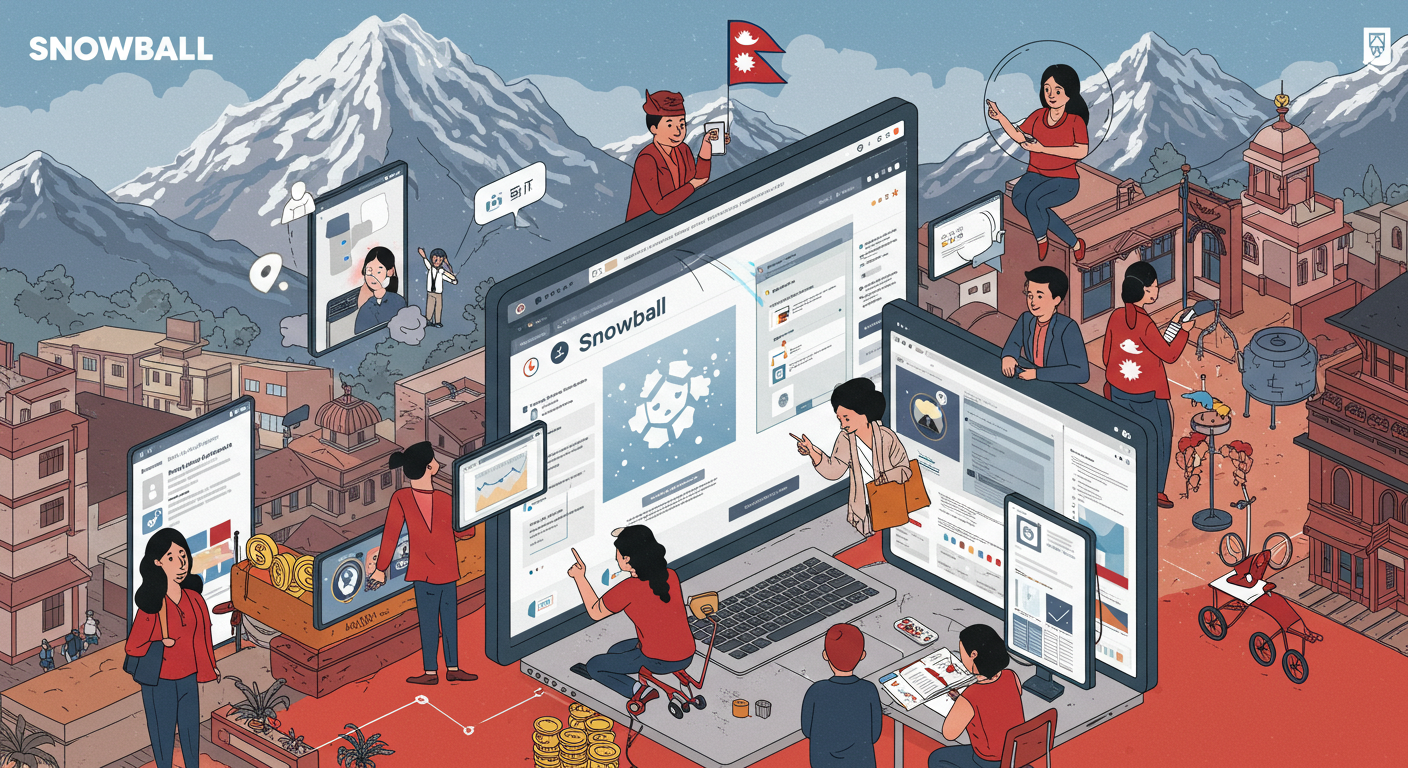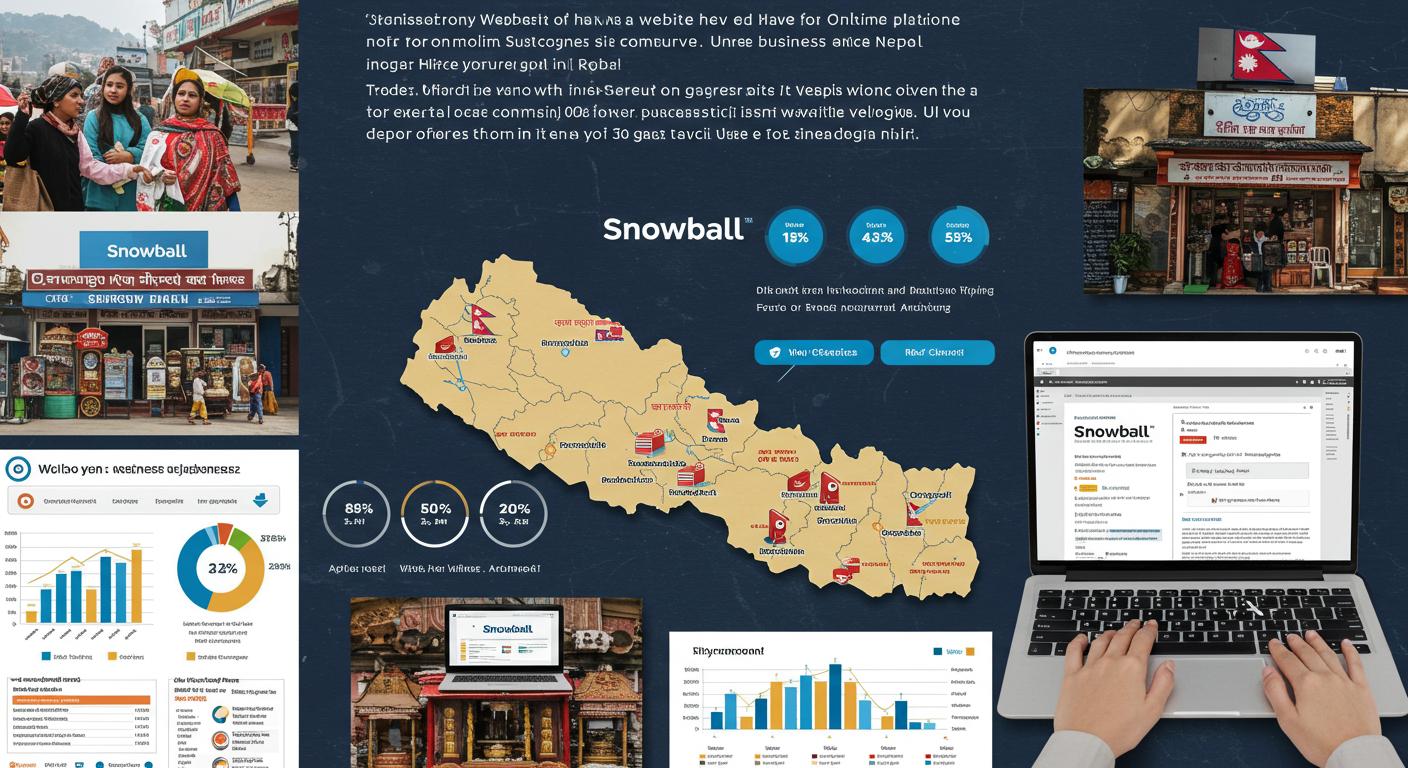
The past few years have witnessed an extraordinary wave of technological growth. Among these advancements, one of the most transformative...

Nepal’s media and business landscape has transformed dramatically in just a few years. Once upon a time, running a business here meant relying almost entirely on word of mouth, local print ads, or maybe a radio spot. Then social media changed everything. Platforms like Facebook, Instagram, TikTok, and YouTube became the new storefronts for ambitious entrepreneurs.
This marked the beginning of the Nepali digital business movement, which included selling clothing on Facebook, displaying food menus on Instagram, and going viral with TikTok reels. Small businesses, startups, and home-based vendors could instantly reach thousands of consumers with just a smartphone and an internet connection.
But now the rules of the game are shifting again. The Government of Nepal has introduced regulations requiring online businesses to register officially and to operate through their own website or eCommerce store. In other words, social media is no longer enough. To survive and thrive, you need a professional, sustainable, and credible online presence.
Social platforms are powerful, but they were never designed to be the entire foundation of a business. They are tools for promotion, not a substitute for ownership.
Here are a few reasons why relying only on social media can leave a business vulnerable:
Think of social media like renting a shop. It works as long as the landlord is happy with you, but you’re never fully in control. Owning a website is like owning your own building: it’s permanent, stable, and entirely under your authority.
Interestingly, this shift in business reflects what’s happening in Nepal’s media landscape. TikTok, Instagram, and YouTube dominate the entertainment scene, while traditional outlets like newspapers, TV, and radio still hold the upper hand in credibility.
Why the difference? Traditional media operates with checks and balances like fact-checking, editing, and editorial standards. While digital platforms thrive on creativity and instant sharing: for fun, news snippets, and viral content, digital shines. But people still turn to traditional outlets for reliability.
Businesses face the same dynamic. Social media is great for visibility, but when it comes to professionalism and long-term trust, having your own website sets you apart as a serious digital Nepali business.
Government regulations aside, a website has become an essential building block for any future-ready business. Here’s why:
This isn’t about abandoning Facebook, TikTok, or Instagram. They still play a huge role in customer engagement and promotion. But the smartest path is to use social media to attract attention and then channel that audience to your website, where trust is built and conversions happen.
In the same way that digital platforms haven’t “killed” traditional media but instead exist alongside them. Your website and social accounts should complement each other. Social grabs attention while website seals the deal.
Shifting from being a social-media-only seller to becoming a full-fledged digital Nepali business does comes with hurdles:
Financial constraints. Many small businesses are hesitant to invest in websites or digital infrastructure.
Digital literacy. Not every entrepreneur has the knowledge to manage websites or online marketing.
Unequal access. The digital divide still exists, with rural areas having weaker connectivity and fewer resources.
Misinformation. Just as social platforms have enabled creativity, they’ve also allowed false information to spread, making credibility even more important.
But challenges also create opportunities. Businesses that adapt early by investing in websites, improving digital skills, and balancing social with professional platforms will lead the next wave of Nepal’s digital economy.
If we look back, every major change in communication was met with hesitation. Handwritten newsletters gave way to printed newspapers, state-run radios evolved into private channels, and 24-hour TV broadcasts reshaped information access. Each leap felt disruptive at first, but eventually became the new normal.
Today, the move from social-only selling to websites and integrated digital platforms is just another step in that long history of progress. Like media, business communication has always adapted to new tools, and this era is no different.
For Nepali entrepreneurs, the message is clear: don’t see this as a burden, rather see it as an upgrade. A website is not just a formality to satisfy government rules but your permanent headquarters online.
At Imagio Creations, we’ve already seen this shift up close. Businesses that once survived entirely on Facebook pages are now asking for eCommerce sites, booking systems, and even mobile apps. They want reliability, scale, and professionalism.
We don’t just deliver websites, we build long-term digital assets that grow with your business. Whether it’s an online store, a custom app, or integrated software, we help Nepali entrepreneurs future-proof their digital presence.
Social media is still valuable. It creates buzz, spreads messages quickly, and keeps you connected to your customers. But it cannot be your only foundation anymore. With Nepal’s digital policies in motion and consumer expectations rising, having a website is now survival. Social platforms make you visible and your website makes you trustworthy.
Together, they form the foundation of a resilient digital Nepali business. The businesses that adapt today by balancing creativity with credibility, speed with structure will not only stay compliant but will also lead Nepal’s economy into its digital future.
